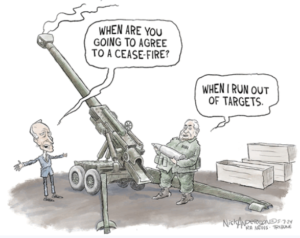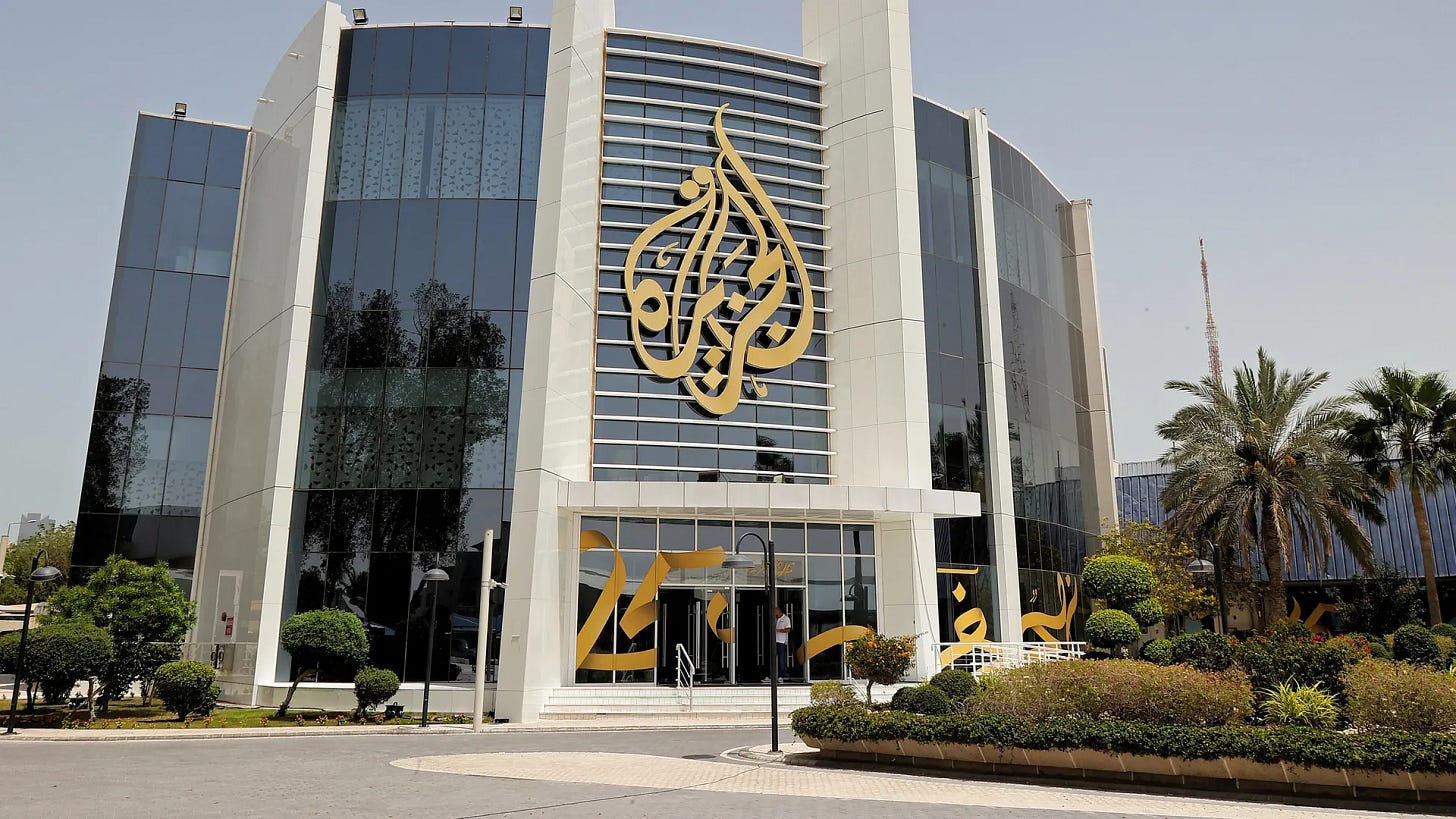Amid persistent calls from the United States and other countries that Israel needs to make it easier for life-saving aid to reach Palestinians in the Gaza Strip, the Israeli military closed two of the region’s few operating border crossings in Rafah, a southern Gazan city, on May 7, 2024.
Responding to political pressure and alarm, Israel then reopened a different border crossing into Gaza, called Kerem Shalom, on May 8.
These border crossings are crucial for aid workers and deliveries of food, fuel and other supplies, especially as commercial imports have stopped entering Gaza. The amount of aid going into Gaza each day has varied since Hamas’ Oct. 7, 2023, attack on Israel, and Israel’s subsequent invasion of Gaza. But the overall number of aid trucks flowing through the Rafah and Kerem Shalom crossings is down 75% from before the war, according to the United Nations. Aid workers say they are unable to meet Palestinians’ needs in Gaza, even with the aid air drops and boat shipments that the U.S. and other countries are doing.
I spent 20 years as the president of Oxfam America, an international humanitarian organization, and have overseen humanitarian responses to some of the biggest crises of the past three decades, from the war in Kosovo to the conflicts in Iraq and Afghanistan. I know from experience that the major aid organizations know how to run large, well-integrated operational responses to emergencies like Gaza. However, this is not happening, in part because Israel is not giving aid groups what they need to do so.

The Needs in Gaza
After seven months of conflict, the international community has not set up the kind of well-coordinated response it would normally provide during a crisis.
There are several reasons why enough aid deliveries are not quickly entering Gaza. First, Israel controls all of the border crossings into Gaza and does intensive searches of trucks for security reasons, slowing down the deliveries. Even if aid does cross into Gaza, it does not mean the goods will reach people in need.
There have also been reports of people dying and being injured when trying to collect aid packages that are air-dropped, as well as Hamas and other groups intercepting aid deliveries and either hoarding the items or selling them at high prices on the black market.
In early May, northern Gaza passed a critical threshold and is now entering into a “full blown famine,” according to the United Nations.
Bombings in Gaza have destroyed water and energy systems, leaving 95% of the population without access to clean water.
There’s a fairly standard playbook for how aid organizations respond to humanitarian crises like the one playing out in Gaza. In most cases, the Office for the Coordination of Humanitarian Affairs, a designated U.N. office that focuses on humanitarian affairs and is typically called OCHA, takes the lead in defining what exactly different U.N. agencies should do to help people in a crisis.
The World Health Organization, World Food Program and other U.N. agencies all have their own specialties – be it health, housing, hunger, education or other issues. The U.N. agencies coordinate their work, while OCHA also assigns an international nonprofit organization to help each U.N. agency share their workload with other international and local nonprofits.
In most emergencies, there is clear coordination among international aid agencies from day one. This is a well-oiled machine with decades of experience in meeting people’s immediate needs in some of the world’s most challenging circumstances.
Aid Work in Gaza Is Different
However, Gaza does not align with this typical system of aid work.
In Gaza and the West Bank, the U.N. Relief and Works Agency for Palestinian Refugees in the Near East, or simply UNRWA, has been the main U.N. agency that has been focused only on providing a full suite of services to Palestinians since the late 1940s, when Israel was created and many Palestinians were pushed out into what are now the Palestinian territories of Gaza and the West Bank.
Over the years, UNRWA’s role has evolved from meeting Palestinians’ basic needs for food and water, for example, to also providing health care and education. While other U.N. agencies like the World Health Organization work in Gaza, UNRWA is by far the largest aid organization there — and after Hamas is the second-largest employer in Gaza.
Both the Israeli and Egyptian governments have long recognized UNRWA as the main coordinator for trans-border aid shipments, especially those for other U.N. agencies and nonprofits that work with it.
While the UNRWA was accustomed to operating a large humanitarian operation in Gaza before the war, the agency is not equipped or staffed to help provide housing for the more than 1.7 million people in Gaza who have had to flee their homes.
Additionally, Israel and the UNRWA have a long, complicated relationship that came to a peak in March 2024, when Israel said that it would stop working with the agency altogether because of allegations —which have not been independently verified — that UNRWA staff participated in the Oct. 7 attacks and held hostages captive.
Israel no longer working with the UNRWA creates new logistical challenges that prevent a coherent, organized humanitarian response in Gaza. This may force other U.N. agencies to suddenly take over UNRWA’s long-established roles in Gaza.
Border Closings and Other Challenges
Israel’s intermittent closing of border crossings into Gaza – and continued long delays for arriving aid trucks – is another crucial factor that is hampering aid delivery.
Aid experts also say that the number of aid trucks entering Gaza, which in May 2024 reached an average of 180 per day through the two main crossing points combined, is inadequate to address the hunger crisis.
Achieving what’s actually needed, they say, would require many more trucks, an influx of aid workers, training of Palestinian medical personnel to treat people suffering from malnutrition and gastrointestinal diseases, the restoration of medical facilities and, above all, an end to the military conflict.
Meanwhile, international nonprofits and their staff are facing their own safety challenges. At least 224 aid workers, most of them Palestinians, have been killed in Gaza since October 2023. Indiscriminate bombings of residential neighborhoods have forced other aid workers to move their families multiple times to find safety and shelter, making it nearly impossible for them to do their jobs.
Possible Reforms
I think there are certain things that the U.N. could do to help make it easier for aid deliveries to reach people in Gaza.
First, OCHA could step in to better coordinate all of the relevant U.N. agencies that may need to join or take on a larger role in the Gaza humanitarian crisis.
I also think that the U.N. could insist that Israel help create safe and secure conditions for a well-coordinated and comprehensive U.N. response. This includes guarantees to open additional border crossings as needed, and increase the number of daily aid deliveries — especially food — as well as ensuring more consistent access and supplies.
Professional humanitarians are prepared to sacrifice ourselves to preserve and protect the dignity of all, both Israelis and Palestinians. History has taught that the only lesson from all wars is that no one really wins and millions suffer quietly well into the future.
Humanitarians’ job is to find and create safe spaces and save as many lives as we can, with the experience and resources at our disposal. We carry no weapons and rely entirely on respect for international humanitarian law and other rules of war to ensure our safety as we carry out this dangerous mission. But in order to carry out this work, we need access and minimally safe and secure conditions that let us do our jobs.![]()
This article is republished from The Conversation under a Creative Commons license. Read the original article.


















